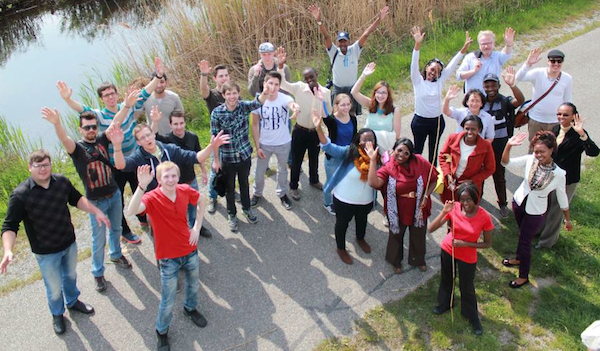
A recent survey mapping the level of Kenyan Diaspora engagement in development, and their potential for cooperation with German institutions ranks Germany as the 7th favorable destination for Kenyans abroad.
Large populations of Kenyans are also to be found in English speaking countries; the United Kingdom, Canada and the USA, as well as in the neighboring East African states.
The study commissioned by the Deutsche Geselschaft für Internationale Zusammenarbeit (GIZ) and carried out by researchers at the Maastricht United Nations University in the Netherlands, shows a growing interest of Kenyans in Germany in the development initiatives at home.
The report co-authored by Ayla Bonfiglio, Elaine McGregor, and Mellisa Siegel indicates that Kenyans are finding reasons to settle in Germany, unlike in the past few years, where Germany acted as a transit country to other developed countries such as the United Kingdom and United States of America.
The study records that Kenyans have migrated to Germany since the early 50s to mid-70s. The report attributes early migrations to Germany to Kenya’s First President Jomo Kenyatta’s support for education abroad, as a strategy to attain industrial and professional growth in Kenya.
At the time, many Kenyan students benefited from government funded scholarships for studies in the UK, USA, Russia or Canada. Overtime, Germany became a well sought education destination. Most graduates returned for lucrative careers in the civil service or in public universities, however those who remained form part of the first generation of Kenyans in Germany.
Over the years, Kenyans have also migrated to Germany for marriage, or family reunions with members already settled in Germany. Election upheavals and unfavorable economic conditions are some of the factors mentioned as reasons for migration.
Although there has been a gender balance among Kenyans in Germany, those who decide to stay range between the ages of 25 to 39 years, and are seen to be the most economically active. However, it was also found that unlike Kenyans in the UK and USA, those in Germany lack strong networks and are dispersed across various states.
The authors found that despite Kenya having launched a Diaspora Policy in 2015, the Kenyan government was yet to tap into the potential within the Germany Diaspora, as it was already doing with other Kenyans in traditional destinations. According to the report, this factor limits the cohesion of Kenyans in German.
The report also indicates that Kenyans in Germany were more likely to engage in Diaspora networks that address their needs, unlike development organizations which target projects that specifically address issues in Kenya.
Visa limitation was highlighted as the main challenge of running diaspora organizations in Germany, the authors argue that most Kenyans have to return home upon the expiry of their visas. This has led to the disintegration of organizations the report records.
Organizations interviewed for the study also mentioned lack of membership, time, and funding among some crippling challenges of forming Diaspora organizations.
The study also notes that while the Diaspora have an interest and a potential to contribute to development in Kenya, there was a scarcity of information on the current German-Kenya initiatives.
The report recommends that the Centre of International Migration and Development (CIM) should consider ways to assist Kenya Diaspora Organizations and Networks, or partner in development oriented projects.
Below are facts you need to know about Kenyans in Germany.
| Kenyans in Germany Fact Sheet | |
|---|---|
| Number of Diaspora Development Organizations/Networks | 23 active Kenyan run |
| Location of the Organizations | Bavaria (4), Berlin (2), Hamburg(3), Hesse (4), Lower Saxony (1), North Rhine Westphalia (1), Schleswig Holstein (2) |
| Number of Kenyans in Germany | Likely to exceed 14,000 individuals (Approx. 9,900 born in Kenya and 3,300 born in Kenya but have since acquired German nationality) |
| Kenyans registered in Germany | 10,000 According to data from Federal Statistics Office |
| Gender and demographic comparisons | By 2013 73 percent was female, 67.$% between 20-39 years, of 478 individuals born in Germany with Kenyan passports 99.4 are under 20 years |
| Employment ratio | By 2014, 820 Kenyans in Germany were classified as being unemployed - with 22% male and 78% female 1,646 were classified as job seekers. |










